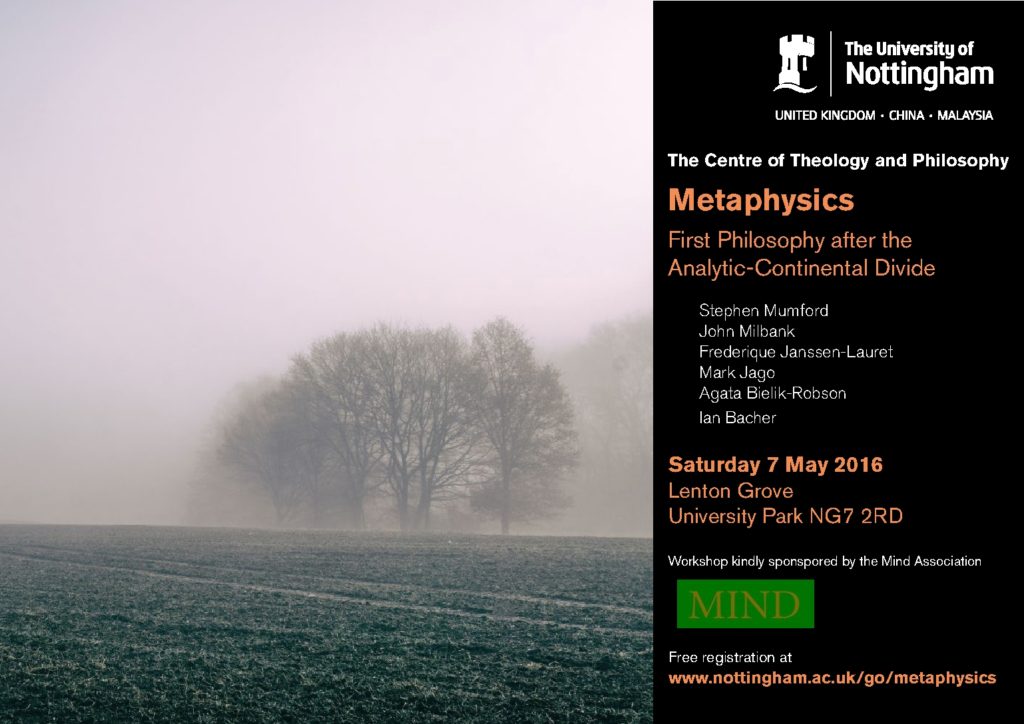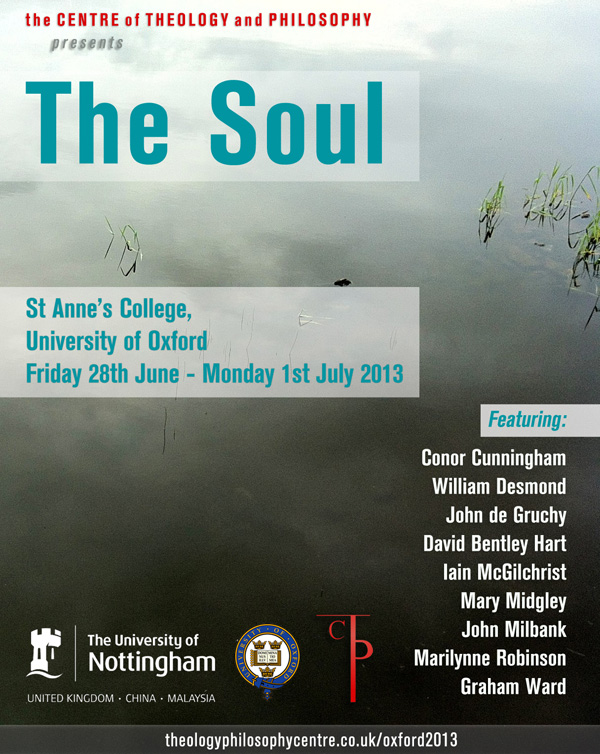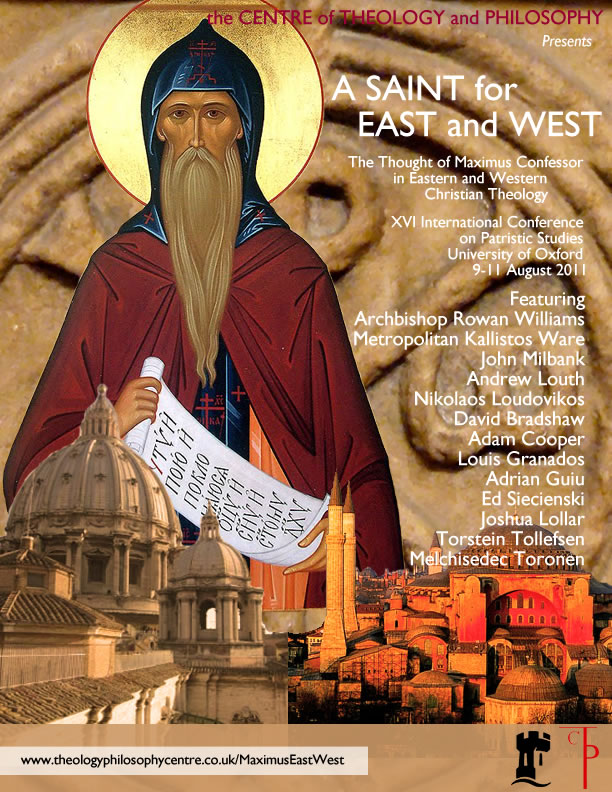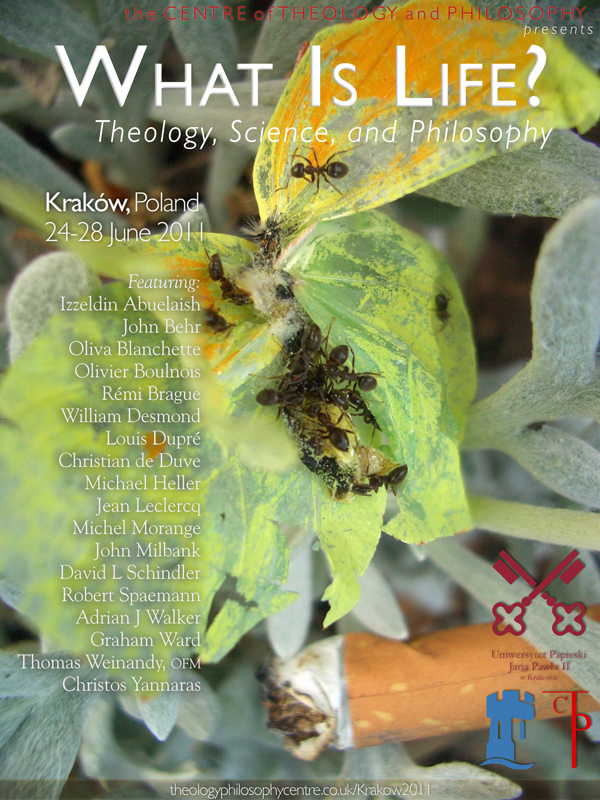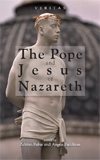
Metaphysics: First Philosophy after the Analytic-Continental Divide
(May 2016; Nottingham)
For a period in the history of both the analytic and continental traditions, ‘metaphysics’ was regarded as an outdated or even forbidden philosophical discipline. In recent decades, both traditions have seen a revival in the study of metaphysics and, more specifically, a return of ‘realist’ and even speculative metaphysical theorisation. Bringing together metaphysicians from various philosophical and theological traditions, this day-conference considered topics including:
- What is ‘metaphysics’? Is it still regarded as ‘first philosophy’?
- What is metaphysical ‘realism’? How might it differ from an epistemic realism? Is metaphysics something more than ‘applied’ epistemology or logic?
- Does (or should) a metaphysical realism imply ‘practical’ implications on ethics and politics? If so, does realism entail a return to teleological thinking?
- What is the relation between the analytic-continental divide and the proclamations of ‘the end of metaphysics’ in the early 20th century? Can the revival in metaphysics contribute to the unification of future philosophy?
Speakers at this event include: Stephen Mumford, John Milbank, Frederique Janssen-Lauret, Mark Jago, Agata Bielik-Robson, and Ian Bacher.
This event was kindly sponsored by the Mind Association (UK).
The Soul
(June 2013)
Conference Précis:
Ever since Descartes, the soul understood as immediate mental consciousness has tended to stand as a last bastion securing religious belief against naturalistic reduction. But today that bastion is under assault from the ‘new atheists’. However, the bastion is proving very hard to storm, with increasing numbers of even atheist thinkers denying that its capture by neuroscience will ever prove possible. Meanwhile, more subtle naturalisms are arguing that the body and the environment as well as the brain are involved in thinking processes. Thus we are seeing the emergence of a tripartite debate between lingering dualism, outright denial of the reality of mind and various accounts of mind-body unity, sometimes embracing panpsychism. Within this third option there exists scope to revisit traditional, pre-Cartesian monothesitic accounts of the soul as the form of the body as well as the site of an immortal spark of reason. This debate is of crucial cultural significance, because, if the last bastion cannot be stormed, it will throw the intellectual coherence of naturalism into doubt and encourage a new intellectual boldness on the part of believers. Since most people assume, against naturalism, the reality of things like free will, intentionality and love, it might well be that religion, rather than scientism, will soon be generally perceived as more aligned with common sense. For if mind and soul are not readily derivable from below, must they not rather be derivable from above? The topic of this conference therefore could not be more crucial and timely.
This conference has now passed. You may still access the conference page here.
A Saint for East and West:
The Thought of Maximus Confessor
in Eastern & Western Christian Theology
(2011; Oxford)
XVI International Conference on Patristic Studies
University of Oxford
9-11 August 2011
Click here for more information.
What is Life?: Theology, Science, and Philosophy
(2011; Kraków, Poland)
In 2011, the Centre of Theology and Philosophy, in partership with Center for World Catholicism and Intercultural Theology (DePaul University), Pontical University of John Paul II (Kraków), Copernicus Center for Interdisciplinary Studies (Kraków), Institute for Faith and Learning (Baylor University), will be having its fourth international conference entitled “What is Life?: Theology, Science, and Philosophy” to be hosted in Kraków, Poland.
24-28 June 2011
Christian Social Teaching and the Politics of Money: An International Conference on Religion and the Recession
(2009; Nottingham, UK)
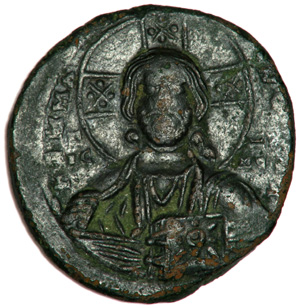 Conference held 9 and 10 July 2009
Conference held 9 and 10 July 2009
The working hypothesis of the conference is that there is there is a ‘middle’ position between an exclusively religious and a strictly secular perspective: faith can lead to a strong notion of the common good and a belief that human behaviour, when disciplined and directed, can start to act more charitably. There can also be secular intimations of this: the more faith-inspired practices are successful even in secular terms (more equality, more consensus, more human happiness, a better ecology), the easier it will be for secular institutions to adopt such a regulatory framework without having fully to embrace its religious basis.
Speakers: Gabriella Berloffa, Phillip Blond, Luke Bretherton, Stratford Caldecott, Peter M. Candler Jr, Archpriest Vsevolod Chaplin, Zaki Cooper, Jon Cruddas MP, Very Revd Dr Jeffrey Cuttell, Revd Dr Andrew Davison, Donal Dorr, Shahid Ebrahim, Giuseppe Folloni, Maurice Glasman, Philip Goodchild, Revd Dr John Hughes, Rt. Revd Dr John Inge, Dr Michael Mack, Archbishop Mons. Javier Martínez, John Médaille, John Milbank, Michael Northcott, James Noyes, Simon Oliver, Adrian Pabst, Ann Pettifor, David L. Schindler, Rt. Revd Dr Peter Selby, Neil Turnbull, Norman Wirzba, Stefano Zamagni, Paul Spencer Williams [to see more information about these speakers, click here]
The Conference poster can be found here.
The Grandeur of Reason: Religion, Tradition, and Universalism
(2008; Rome, Italy)
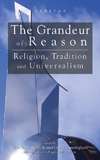 Semi-annual conference on 1st-4th September, 2008
Semi-annual conference on 1st-4th September, 2008
Panels were held on: Metaphysics, Systematic Theology, Politics and Theology, Islam and Christianity, The Disenchantment of the Cosmos, Faith with/against Reason.
The CoTP accepted papers that cover any topic relevant to the conference theme, but was especially interested in questions of religion and empire, Christianity and Islam, humanism and universalism, the reunification of the Apostolic Churches, and Scripture and Metaphysics.
The CoTP produced a volume which collected essays from this event in the Veritas series by SCM Press, edited by Peter M. Candler, Jr. and Conor Cunningham.
The Pope and Jesus of Nazareth
(2008; Nottingham, UK)
Conference held 19th and 20th June, 2008
The publication of the book Jesus of Nazareth on 16 April 2007 was an unprecedented event: never before had a reigning Pope published personal reflections on Jesus. Benedict XVI’s book engages not just with New Testament scholarship but also with fundamental methodological questions related to historical criticism.
The Pope and Jesus of Nazareth provides essays by some of the leading scholars in Britain, continental Europe and the USA to highlight the insights and limits of the Pope’s reflection on Jesus. Specifically, it engages with the book from critical, cross-disciplinary and different faith perspectives.
Contributors include: Richard Bell, Markus Bockmuehl, Peter Casarella, Roland Deines, Henri-Jérôme Gagey, Richard B. Hays, Fergus Kerr OP, Francisco Javier Martínez, John Milbank, R. W. L. Moberly, George Dennis O’Brien, Angus Paddison, Adele Reinhartz, Mona Siddiqui, and Olivier-Thomas Venard OP.
This volume is published by SCM Press and edited by Adrian Pabst and Angus Paddison.
Belief and Metaphysics
(2006; Granada, Spain)
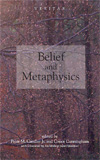 Annual Conference 15th-18th September, 2006
Annual Conference 15th-18th September, 2006
‘Could it turn out that nobody has ever believed anything?’ (Paul Churchland)
The Centre of Theology and Philosophy, in partnership with the Instituto de Filosofía Edith Stein de Granada (www.if-edithstein.org), held its annual conference, over four days, in Granada, Spain, doing so under the invitation of Archbishop Javier Martínez.
Speakers included: Oliva Blanchette, Louis Dupré, Mark D Jordan, Merold Westphal, David Cooper, John Cottingham, E.J. Lowe, Rudi te Velde, David Bentley Hart, Ludger Honnefelder, David Burrell, Hent de Vries, Simon Conway-Morris, Charles Taliaferro, Michael Rea, and John Milbank.
The CoTP welcomed papers discussing any topic at the interface of belief and metaphysics, especially questions concerning the relation between belief and realism, in light of ontological naturalism, and scientistic reductionism, on the one hand, and cultural relativism and Postmodernism, on the other.
The CoTP produced a volume which collected twenty essays from this event in the Veritas series by SCM Press, edited by Peter M. Candler, Jr. and Conor Cunningham, and contains a foreword by Archbishop Javier Martínez.
Transcendence and Phenomenology
(2005; Nottingham, UK)
 Annual conference 1st–2nd September, 2005
Annual conference 1st–2nd September, 2005
Guest Speakers include: Jean-Yves Lacoste, Laszlo Tengelyi, Anthony Steinbock, Paul Audi, Natalie Depraz, Jeff Bloechl, Jean Greisch, Richard Kearney, Rudi Visker, John Milbank, Emmanuel Falque, Ruud Welten, and Dermot Moran.
The CoTP welcomed the submission of abstracts on any topic involving phenomenology and, or transcendence. Especially those discussing the resistance phenomenology may offer to ontological reductionism, and those exploring the ‘turn to religion’, so-called, in the work of Michel Henry, Jean-Luc Marion, Paul Ricœur, Jean-Louis Chrétien, Stanislas Breton, and Emmanuel Levinas.
The CoTP produced a volume which collected twenty essays from this event in the Veritas series by SCM Press, edited by Peter M. Candler, Jr. and Conor Cunningham, and contains a foreword by Paul Cardinal Poupard.

(Sculpture by Sara Cunningham-Bell)

